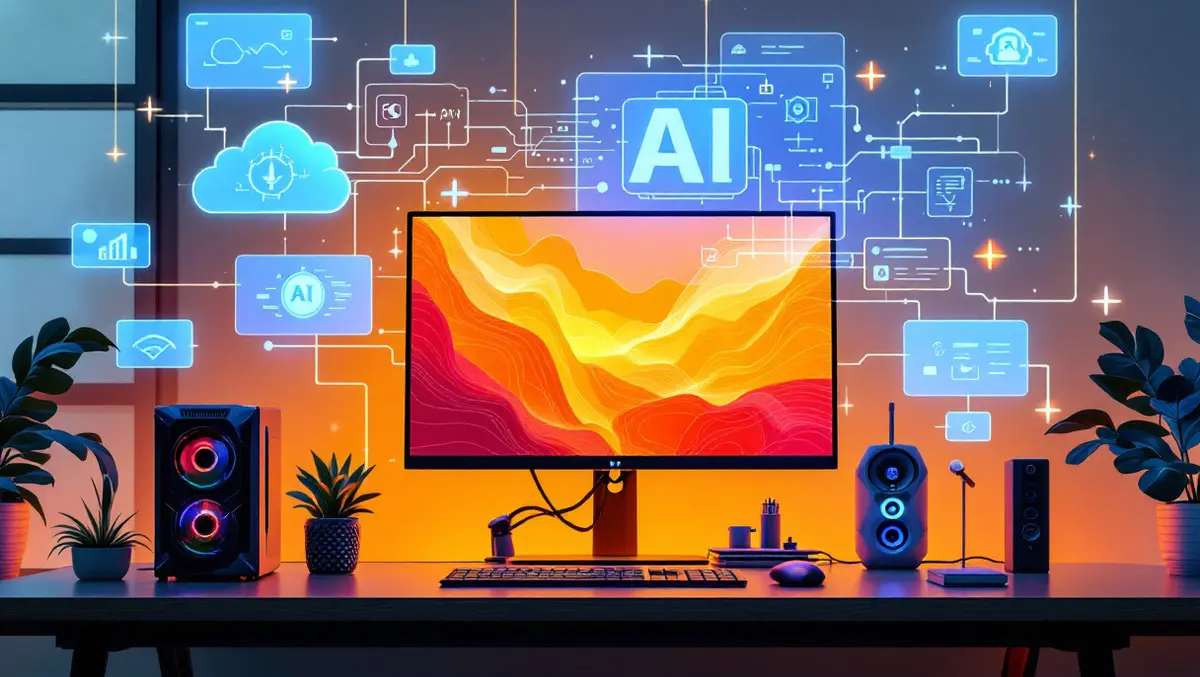
NVIDIA expands AI tools for Windows RTX PCs & Azure users
NVIDIA and Microsoft have announced a series of updates aimed at advancing artificial intelligence capabilities on Windows RTX AI PCs and within Azure cloud services.
According to NVIDIA, recent announcements cover new tools and integrations designed to make AI development and deployment more accessible. These range from local inference enhancements on RTX AI PCs to advanced model hosting and deployment through microservices in Azure.
In a detailed blog post on the NVIDIA AI Garage, the company highlighted new support for TensorRT by Windows ML, as well as the introduction of NIM microservices. NIM microservices are described as pre-packaged, optimised AI models that can be used in widely adopted applications.
Project G-Assist, NVIDIA's AI assistant for RTX PCs, is expanding its capabilities with new community plug-ins. These include integrations with Google Gemini web search, Spotify, Twitch, IFTTT, and SignalRGB. The company stated, "Those looking for a simple, no-code way to dive into AI development can tap into Project G-Assist - the RTX PC AI assistant in the NVIDIA app - with new community plug-ins now available, including Google Gemini web search, Spotify, Twitch, IFTTT and SignalRGB."
During Microsoft Build, NVIDIA announced enhanced support for GeForce RTX GPUs in Windows ML. The company said that Windows ML will now automatically use the TensorRT for RTX inference library, aiming to deliver higher performance and more rapid deployment for AI applications. Compared to DirectML, NVIDIA claims that TensorRT offers more than 50% faster performance for AI workloads on PCs.
Aside from performance, NVIDIA also emphasised ease of use for developers. The company explained, "Windows ML also delivers quality-of-life benefits for developers. It can automatically select the right hardware - GPU, CPU or NPU - to run each AI feature, and download the execution provider for that hardware, removing the need to package those files into the app. This allows for the latest TensorRT performance optimisations to be delivered to users as soon as they're ready."
The updates also expand the AI ecosystem on Windows 11 PCs. NVIDIA outlined how application developers can take advantage of a set of software development kits (SDKs) to add new AI-powered features or enhance application performance. Recent updates from top applications include LM Studio upgrading to the latest CUDA version, resulting in a performance increase of over 30%. Topaz Labs is releasing a generative AI video model that uses CUDA technology for accelerated video quality enhancement. Chaos Enscape and Autodesk VRED are both adding DLSS 4 to their offerings for improved performance and image quality, while BiliBili is incorporating NVIDIA Broadcast features such as Virtual Background to enhance livestream quality.
On the local AI front, NVIDIA announced that, during Computex 2025, it will release the FLUX.1-schnell NIM microservice, which is targeted at fast image generation. The FLUX.1-dev NIM microservice will also be updated to support a broader range of GeForce RTX 50 and 40 Series GPUs. The firm stated that these NIM microservices provide improved speeds due to TensorRT acceleration and the use of quantised models.
Additionally, the company noted, "On NVIDIA Blackwell GPUs, they run over twice as fast as running them natively, thanks to FP4 and RTX optimisations. Azure Discovery will integrate NVIDIA ALCHEMI and BioNeMo microservices to accelerate materials science and drug discovery workflows."
Project G-Assist is also becoming more accessible with the introduction of the Project G-Assist Plug-in Builder. This ChatGPT-based application allows for no-code or low-code development using natural language commands. This aims to simplify the process of creating plug-ins for Project G-Assist, NVIDIA's experimental AI assistant integrated in its app.
NVIDIA has also made available new open-source plug-in samples on GitHub, demonstrating ways on-device AI can improve PC and gaming workflows. Highlights include an updated Gemini plug-in featuring real-time web search capabilities via Google's free-to-use large language model, an IFTTT plug-in for creating automations across internet-connected endpoints, and a Discord plug-in to enable users to share game highlights or messages directly to Discord servers.


